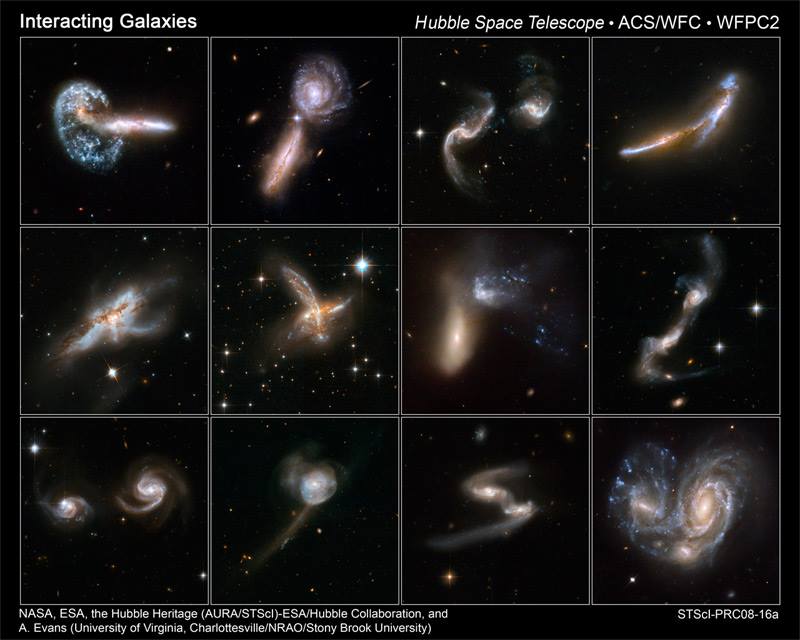"We
live in a superbly beautiful world,
whose underlying secret of life
(existence) is borne by microscopic
entities called 'genes'. They are
indiscernible; they are not visible.
And yet, they determine life and its
characteristics. They are what
determines each person, each identity,
with precision and with details.
We are
swimming inside an ocean of infinite
particles, which relate to assorted and
strange names: Quarks, Gluons, Bosons,
Leptons, Baryons, Neutrinos, Photons and
a host of others - which are also not
visible. However these tiny particles
are what supports the grandeur of this
world. They are the ones that shield its
mystery.
Each
and every one of them has its mission
and its significance, regardless of how
small they are. Some are responsible for
mass; they are called 'Bosons'... we
don't know why. But, without them,
our world wouldn't be tangible.
Then again, they also assist in the
propagation of forces.
Some
are known as 'Gluons'. That's a rather
ugly-sounding name... Then others
constitute the light; they're called
'photons'. A much better-sounding
word...
Mass...
forces... light...
It is
important that mass be interpreted, or
that forces be propagated. Matter
is palpable, and forces are what
maintain movements and preserve
balances; that's how we are enabled to
understand matter and gravity.
But,
for some reason, the 'Photon' has a
unique grandeur of its own. It is very
noble, it has no mass, and yet it
exists. In fact, it can even give birth
to mass; it carries energy, but most
importantly, it indicates and reveals.
It is thanks to 'photons' that we enjoy
the sense of sight.
The
world can be seen. And it is so
beautiful: a multitude of colors,
impressive symmetries, amazing
a-symmetries, contrasts, reflections,
harmony, depth, alternation..
Without
'photons' we would never know the
meaning of beauty, loveliness,
aesthetic, variety, visual harmony... We
would not have been able to compare.
It's as though these particles give life
to matter.
'Photons' confirm the existence of the
world, but they mainly reveal its
beauty. However, in order to see it, you
must find them. This is where our
eyes assist; when they lose their
precision or sensitivity, we use
corrective lenses.
In
order to examine minute objects that
can't be discerned, we use microscopes.
For the distant ones which are likewise
indiscernible, we have constructed
telescopes. We are thus able to
see things that aren't visible.
Our
world is a very beautiful one. And it
encloses a whole lot of wisdom.
Beauty is hidden behind everything that
He displays, and wisdom is hidden inside
whatever it conceals. The former is
appreciated by the eye; the latter
enchants the mind. Without the
stimulant of visible beauty, the mind
would not have been able to embark on
its penetrative journeys. That is
why 'photons' are so valuable.
Usually, we can either photograph or
trace something with the use of
telescopes; we can't actually see the
object. There's a difference between the
two: tracing arouses one's
enthusiasm for verification.
Thought kindles the magic of discovery.
But actually seeing something is what
gives birth to the thrill of immediacy.
Our senses are a wonderful thing.
And most of all, sight.
The
poet Elytis*
had said: "My God, how much blue You
must be spending, so that we can't see
You!" To which we add: "My God, how many
photons You must be creating, so that we
can suspect Your presence! (existence)"
"And
the Lord said 'Let there be light', and
there was light"... in fact, it was
even "in the beginning" - the
first thing...
In the
end, the 'God particle' is not the
'Boson', nor is its name Higgs; that
doesn't tell us anything. The 'God
particle' is the 'photon'. And the
portal to the world is the telescope.
You place your eye against the lens, and
you are plunged into infinity: and
that's where Beauty meets with the
Truth... the eye sees, the heart pounds,
the mind gallops... it is conversing
with the 'photons'... The view is
breathtaking - of the living image.
This is
markedly so in our homeland, with its
seas, the little islands... gulfs,
coastlines, mountains, all of these
together... Her natural beauty takes you
on journeys. It makes you want to either
stay on earth forever, or to depart...
You
want to live forever... and if that
can't be accomplished on earth, you wish
to go elsewhere. The presence of
beauty strengthens your eternity. You
place your eye against the telescope and
you depart... You take off, into
infinity. You are lost in space.
You are released from Time. What a
marvelous sensation is the universe!
However, after a while, even infinity
feels finite. And Time is short. You
want to 'depart' some more. You
want to pass over from the beauty of the
visible, to the experience of the
invisible. And you owe all of these
things to 'photons'. 'Photons'
enable you to see the beauty of the
created and make you suspicious
regarding the truth of the Uncreated.
Photons highlight the One Who cannot be
seen. They highlight God...
I would
like to express my joy for the
opportunity given to me this evening,
and my many thanks to Mr. Tsiganos also,
both for the invitation as well as for
the possibility to open my heart for a
while in your presence. It is a
wonderful thing, when your life can also
host the sensation of Astrophysics,
together with the experience of
priesthood.
And it
was wonderful spending a pleasant
evening at Mount Pentelikon with the
dome open chasing after photons...
probably better than spending entire
years in search of... a Boson in Geneva!

(*)
Odysseas Elytis, Greek poet:
http://en.wikipedia.org/w/index.php?title=Odysseas_Elytis&oldid=567340194